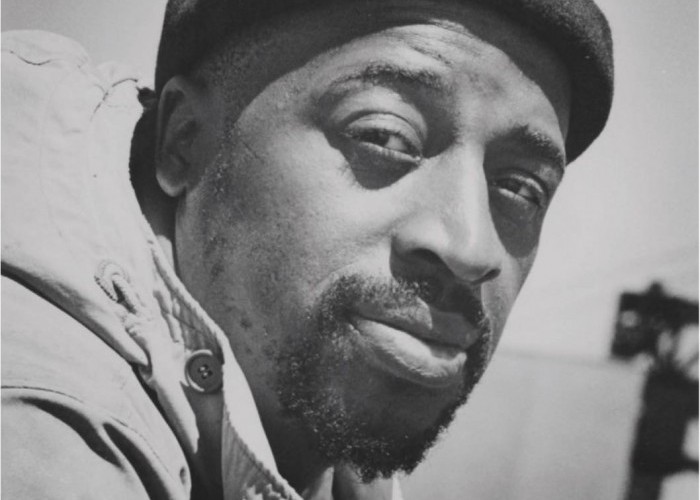Jan 13, 2026 2:09 PM
More Trump-Kennedy Center Cancellations
The fallout from the renaming of the John F. Kennedy Center for the Performing Arts to include President Donald…

Yusef Lateef, 2021 Veterans Committee choice for the DownBeat Hall of Fame
(Photo: DownBeat Archive)
Yusef Lateef came out of the jazz continuum to pursue a career driven by his curiosity and desire to move beyond the implications and limitations of that term, if not the genre.
Starting in the early 1970s, he referred to his manner of expression as “autophysiopsychic — music from one’s physical, mental and spiritual self.” But even before then, he had practiced that discipline in myriad forms, becoming a pathbreaker, prophet, scholar, composer-performer-improviser, poet and revered elder.
For all of that, Lateef has been elected by the DownBeat Veterans Committee to the magazine’s Hall of Fame, although he might have made it just as the multi-instrumentalist who, starting in the early 1950s, introduced a vastly expanded family of reeds, double reeds and other more far-flung inventions to modernist settings. Or simply as an artist who, according to percussionist-comprovisator Adam Rudolph, with whom Lateef worked for 25 years, “Every performance he did was always all new music.”
Lateef and Rudolph collaborated from 1988 to 2013 in quartets, octets, with orchestras and most often as a duo, traveling and recording worldwide. “He always brought new music and new creative processes and concepts to each concert and recording date,” Rudolph wrote in memorial. “Yusef said, ‘With each project I try to do something I have never done before.’”
Born in 1920 (Chattanooga, Tennessee) and raised from early childhood in Detroit, he studied, at first alto saxophone, with trad-oriented trumpeter Teddy Buckner, then worked briefly with Lucky Millinder, Hot Lips Page and Roy Eldridge. The young reedist moved to Chicago in 1948, played with Sun Ra (still called Sonny Blount) and toured for almost a year with Dizzy Gillespie. While on the road he joined the Ahmadiyya Muslim Community and adopted his Islamic name (born William Emmanuel Huddleston, the surname was changed in Michigan by his father to Evans). When his wife fell ill, Lateef returned home to care for their children, and led bands with local cats, including trombonist Curtis Fuller, trumpeter Wilbur Hardin, drummer Louis Hayes, pianist Kenny Barron and guitarist Kenny Burrell, who encouraged him to enroll at Wayne State University, major in flute and take up oboe.
In 1957 Lateef recorded an astounding 10 albums with various groups of those collaborators for the Savoy, Verve and Prestige/New Jazz labels. Relocating to New York by the decade’s end, he played with Charles Mingus (in an ensemble that included Eric Dolphy and Roland Kirk, according to Herb Boyd, who helped with his autobiography, The Gentle Giant), Babatunde Olatunji and Cannonball Adderley, in whose sextet he’s featured on Oscar Brown Jr.’s TV show Jazz Scene USA.
Exoticism for its own sake was not Lateef’s intent; exploration was. He dove deeply into age-old African and Asian traditions, spending four years studying the indigenous sarewa flute as a senior research fellow at Ahmadu Bello University in Nigeria, and embraced modalism, vocalisms, unconventional arrangements and extended techniques, making music with bells, shenai and koto. But Lateef did not abandon his blues, gospel, spirituals and swing-to-bebop roots, his sensitivity on ballads or guts playing changes.
He recorded standards (“Stella By Starlight,” “Angel Eyes,” “Lover Man”) as well as all-original programs (first one: Jazz Mood). He opened his album 1984 (recorded in 1965) with an entirely free rubato collective improv that embraced distorted talking, prepared piano, odd amplification, whistles, no theme, only coherent mood and tension.
Lateef was terrific onstage, but he became disgusted with the club scene, and in 1980 quit it. In 1987 he joined the faculty of University of Massachusetts Amherst, where he’d received an advanced degree in 1975, and at Hampshire College. The year after his appointment, Lateef’s Little Symphony, a four-movement work in which he played all instruments, won the Grammy Award for Best New Age Album.
Working in the ’70 with producer Joel Dorn he released a Blackploitation flick soundtrack, and other recordings with a string quartet, Ray Barretto, the Sweet Inspirations and the Cologne Radio Orchestra. In 1992 he established his YAL label, issuing albums he frontlined with Von Freeman, Archie Shepp and Ricky Ford, among others. He recorded with Rudolph from 1999 (Live In Seattle) to 2009 (Towards The Unknown), and they played together at Roulette in April 2013. Yusef Lateef died the next December. Long live Yusef Lateef. DB

Belá Fleck during an interview with Fredrika Whitfield on CNN.
Jan 13, 2026 2:09 PM
The fallout from the renaming of the John F. Kennedy Center for the Performing Arts to include President Donald…

Peplowski first came to prominence in legacy swing bands, including the final iteration of the Benny Goodman Orchestra, before beginning a solo career in the late 1980s.
Feb 3, 2026 12:10 AM
Ken Peplowski, a clarinetist and tenor saxophonist who straddled the worlds of traditional and modern jazz, died Feb. 2…

The success of Oregon’s first album, 1971’s Music Of Another Present Era, allowed Towner to establish a solo career.
Jan 19, 2026 5:02 PM
Ralph Towner, a guitarist and composer who blended multiple genres, including jazz — and throughout them all remained…

Rico’s Anti-Microbial Instrument Swab
Jan 19, 2026 2:48 PM
With this year’s NAMM Show right around the corner, we can look forward to plenty of new and innovative instruments…

Richie Beirach was particularly renowned for his approach to chromatic harmony, which he used to improvise reharmonizations of originals and standards.
Jan 27, 2026 11:19 AM
Richie Beirach, a pianist and composer who channeled a knowledge of modern classical music into his jazz practice,…